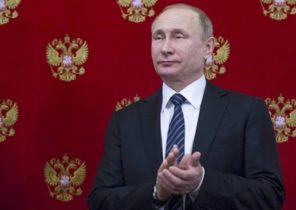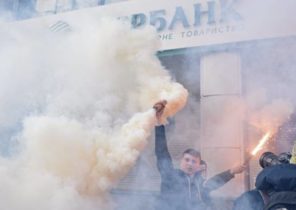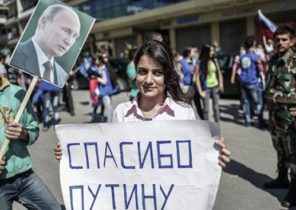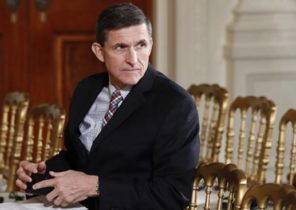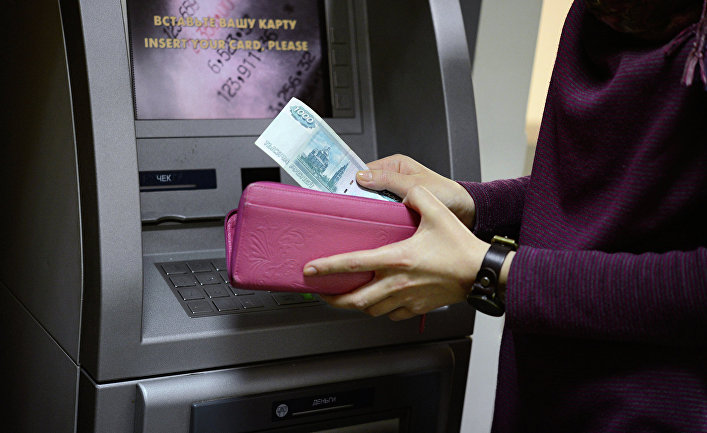
Now Russia has no shortage of records. Even low temperatures in Moscow and the surrounding area has broken all records recorded by meteorologists the past 120 years. And stock exchange MICEX “started” in the new year with an unprecedented rate — 2260 points. And according to the news Agency Bloomberg, Russia is one of the seven countries with economies in transition, which next year will be the most attractive to investors.
Recently the British business magazine The Banker has named the head of the Russian Central Bank Elvira Nabiullina best head of the Central Bank in Europe. As noted by the publication, in late 2014, amid falling oil prices and the devaluation of the ruble, she saved badly needed foreign currency reserves, sending the ruble float freely, and in 2016, managed to reduce inflation from 12.9% to a record low for post-Soviet countries at 6%.
In addition, starting in 2013, Nabiullina has revoked the license of more than 300 banks and reduced their number to 600, to rid the overgrown banking sector of questionable players.
Lagarde escaped from Putin
Shortly before that, and Christine Lagarde (Christine Lagarde), the head of the International monetary Fund (IWF), expressed admiration of the anti-crisis measures of the government and the Central Bank aimed to stabilize the financial sector. The President of Russia Vladimir Putin does not feel pride when in November Lagarde talked about his concerns about the Russian banking sector and requested specific recommendations for improving the situation. Useful answer he received.
However, despite all the news about the records, the public confidence in banks is not restored. Anyway, these are the findings of an international study consulting company Ernst & Young: less than a third of Russians are ready to trust the Bank, whereas in 31 countries, where he also conducted surveys, absolute confidence in banks experiencing more than 40% of the population.
For comparison: according to the same study, in Germany at least 56% of the interviewed expect for indexing and not less than 30% for objective consulting.
The collapse of the ruble and the banking turmoil
According to the Manager of a major Bank VTB24 Dmitry Lepetikov, the Russian situation should not be surprising, given the fact that people have no experience with financial products. In his comments published in the newspaper “Izvestia”, said: “it is difficult to trust what you don’t know.” In addition, he said, many still well remember the shock of the 1998 default.
But there is no need to look so far into the past. Even the fact that the Central Bank radically “canvassing” the banking sector and “cleaned” him, depriving him of the license 300 banks, has caused misunderstanding and irritation of Russians, analysts said Ernst & Young.
And two years ago when the ruble depreciated because of falling oil prices and Western sanctions, people have already started to storm banks. In the last minute of the Central Bank — and this is the merit Nabiullina — managed to prevent the collapse of the banking industry, raising its key rate from 10.5% to 17%.
Turmoil and uncertainty again became constant companions of the Russians. At least for the last two years, when the fall of the economy due to low oil prices and imposed by the West sanctions amounted to 4%, and real incomes fell for the first time since Putin came to power, the Russians again moved to the practice of survival.
Effects sometimes paradoxical. As emphasized recently in an interview, the head of VTB 24 Mikhail Zadornov, “now the payment discipline in the sphere of servicing of individuals incomparably better than in the first years after the financial crisis.”
Zadornov explains that negative expectations of people regarding the future, which is why they want to get rid of debt as quickly as possible. In any case, he said, the volume of “bad loans” in the sphere of servicing of individuals will continue to decline, but in the field of entrepreneurship to grow.
Expectations related to the reduction of the key rate
To rebuild their lives in the last two years not only had people. Banks also suffered greatly. Especially in 2015, when the whole sector net income fell by two-thirds.
Still, in 2016, the Russian credit institutions recovered slightly. Many returned to the area for profit, some even starting from a low base values, multiplied profits. In the end, according to the Central Bank, Russian banks in the first 11 months of last year, earned 788 billion (12.3 billion euros). Two-thirds of them fall on the share leader in the banking sector Sberbank, which sets the tone: in his hands almost half of the deposits across the country and a third of all loans.
The bottom of the economic crisis seems to be passed, and since then the Russian financial sector once again cheered. However, everyone understands that economic growth in 2017 is unlikely to exceed one percent. However, Sberbank expects its loan portfolio will grow from seven to nine percent. The same forecast gives the second-largest Bank VTB.
This picture fits that rating Agency Moody’s recently raised the Outlook of the Russian banking system from “negative” to “stable”. “The slow economic recovery and the stabilization of the macroeconomic indicators of Russia will support the operating environment for Russian banks” — the so —somewhat cumbersome — write Moody’s analysts.
However, in its forecast, the savings Bank assumes that by the end of 2017, the Central Bank of Russia reduces the key rate from the current 10% to 8.5%. He kept it at 10% at the meeting, which was held in mid-December, but at the same time hinted that it is considering the possibility of further decline in the first half of 2017.
